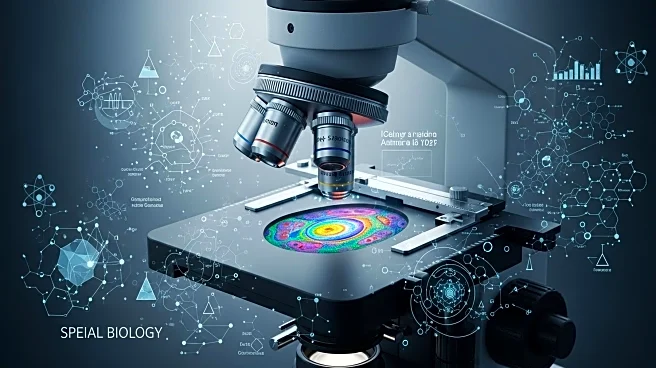What's Happening?
Spatial biology is revolutionizing cancer research by providing detailed insights into the tumor microenvironment, immune infiltration, and cellular heterogeneity at the single-cell level. Researchers are using cutting-edge spatial tools to map tumor ecosystems, offering new perspectives on cancer diagnostics, prognostics, and precision therapeutics. These advancements allow scientists to ask new questions and gain deeper understanding of cancer biology, potentially leading to improved clinical care and patient outcomes.
Why It's Important?
The application of spatial biology in cancer research is significant as it enhances the resolution of tumor analysis, enabling more accurate diagnostics and personalized treatment strategies. By understanding the spatial organization of tumors, researchers can identify key factors influencing cancer progression and response to therapy. This approach could lead to the development of more effective treatments, reducing healthcare costs and improving survival rates. As cancer remains a leading cause of death, these insights are crucial for advancing cancer care and improving patient quality of life.









